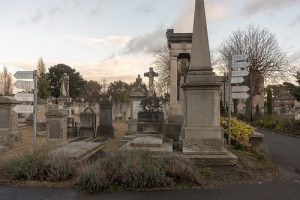 A funeral service and practice consist of arrangements made for the disposition of the body and customary observances for the dead. There is a network of social and legal requirements that must be met that usually involves the services of numerous professionals.
A funeral service and practice consist of arrangements made for the disposition of the body and customary observances for the dead. There is a network of social and legal requirements that must be met that usually involves the services of numerous professionals.
There are a lot of arrangements that can be made prior to death, from the donation of body parts to wills, but Canadian laws and customs restrict how a person’s wishes are implemented after death. There is a tendency to donate body parts for medical research or transplant, but family members may countermand their wish to donate.
Usually, religious attitudes and traditions influence these decisions. A person may dictate the nature and the type of funeral, prepare the newspaper announcement ahead of time and arrange for the final disposition of the remains.
Today, funerals that are prearranged are more the norm in Canada than they were in the past few years. Memorial societies run by volunteers and non-profit consumer-information organizations are found in major cities, and they have had an impact on the public’s attitudes toward funeral costs. Their function is to encourage preplanning funerals and to ensure that low-cost and simple funeral options are available from the funeral industry.
For members of the armed forces, the police or highly placed individuals, protocols about funeral arrangements may take precedence over individual or family wishes and customs. Both group values and professional organizations play a great role. State funerals are held to honor public officials including prime ministers, governors general and members of parliament. These public memorials are formally arranged and offer people an opportunity to commemorate national figures and to mourn.
If sudden death is involved or if there is no clear reason for death, the medical examiner of the provincial coroner requires an autopsy to be performed. Since health care is a provincial responsibility, the legal requirements depend on the provincial legislation. Legal requirements take precedence over religious views.
Religious groups such as Sikhs, Hindus, and Muslims may require preparation of the body to be done by the eldest son or by a designated individual, but for majority of Canadians, the funeral director prepares the body, washes it, ejects blood from the veins and substitutes embalming fluid, cleans and disinfects the chest and abdominal cavity, applies makeup, fixes the hair and dresses the body in clothes.
The visitation or vigil is held in the presence of the deceased before the burial service. It may be done in the home of the deceased or funeral home. Funeral services differ according to cultural and religious practices. For Muslims, if there is no local mosque, the last prayer over the body may take place in the home of the deceased before the body is transported to the cemetery.
For Christians, the norm is to have the service at the church with the body present. The memorial service also depends on the family and the deceased want. It is through a celebration of his or her accomplishments that are accompanied by music or poetry, reflecting the deceased’s tastes.
Such services may be devoid of religious reference. Having no funeral service has increased over the last few years because of cremation, private celebrations, and delayed burial though it is impossible to quantify the extent of this trend.
Funeral processions are headed by cars that contain the mourners and followed by the hearse and friends of the family. The lights on the motorcade were traditionally the signal for bystanders to pause to show respect for the departed. Chinese Canadian mourners insisted on an impressive funeral procession to reflect the status of the deceased in the community.
For most Canadians, the funeral service is the last public occasion for relating to the dead. Among some Indigenous people of the northern British Columbia and Yukon, small houses surrounded by a fence are built over a grave, with offerings that are symbolic for the journey to the land of the dead.
Mausoleums may also be erected for the distinguished or wealthy deceased, but cost and resistance to glorifying the dead have kept the practice from becoming widespread. For those who leave a will, an executor will call the beneficiaries together for the reading, and the memory of the deceased lives on in the disposal of the inheritance.


